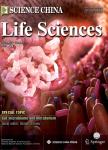Chimeric antigen receptor engineered innate immune cells in cancer immunotherapy
Chimeric antigen receptor engineered innate immune cells in cancer immunotherapy作者机构:Department of Immunology School of Basic Medical Sciences NHC Key Laboratory of Medical Immunology (Peking University) Peking University Health Science Center
出 版 物:《Science China(Life Sciences)》 (中国科学(生命科学英文版))
年 卷 期:2019年第62卷第5期
页 面:633-639页
核心收录:
学科分类:0710[理学-生物学] 0830[工学-环境科学与工程(可授工学、理学、农学学位)] 1002[医学-临床医学] 100214[医学-肿瘤学] 10[医学]
基 金:supported by grants from the National Natural Science Foundation of China(81873871) the Fundamental Research Funds for the Central Universities(BMU2018XY001)
主 题:chimeric antigen receptor cancer immunotherapy innate immune cell
摘 要:Introducing chimeric antigen receptor into immune cells against malignancies has contributed to a revolutionary innovation in cancer immunotherapy. As an important type of adaptive immune cells, T cells first caught researchers attention and became great success in chimeric antigen receptor-based immunotherapy. However, engineered T cells seem to hit their bottleneck when resistance of cancerous cells, less encouraging responses in solid tumors and unwanted toxicities to the host remain to be solved.Meanwhile, innate immune cells get to join the race. Representatives such as natural killer cells, natural killer T cells, γδT cells and macrophages also prove to be well redirected with chimeric antigen receptors. Compared to chimeric antigen receptor engineered T cells, these engineered innate immune cells may possess multiple targeting and killing mechanisms, have the potential to crack the barrier of solid tumors and have less side effects in the host. Besides, possible universal access to cell resources and improvements in expansion and transduction techniques make these cells promising candidates with huge potential in translational medicine. Therefore, innate immune cells claim a brand-new dimension and are likely to supplement T cells greatly in the field of chimeric antigen receptor-based immunotherapy.



